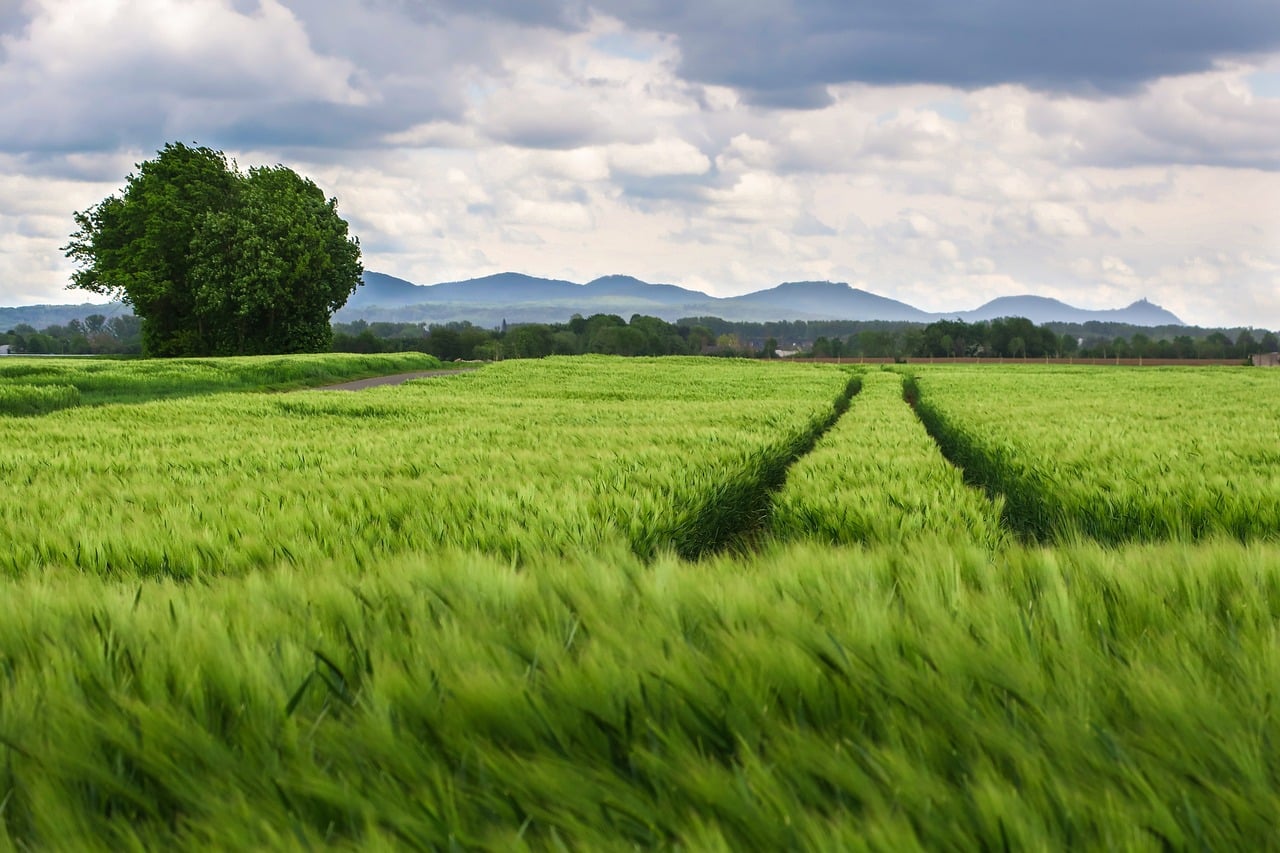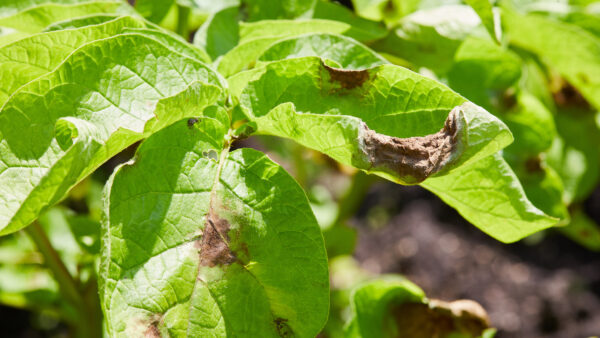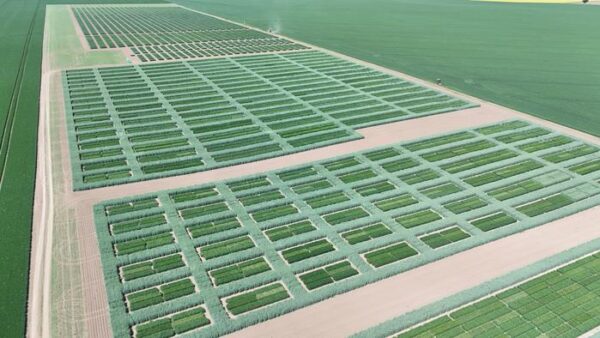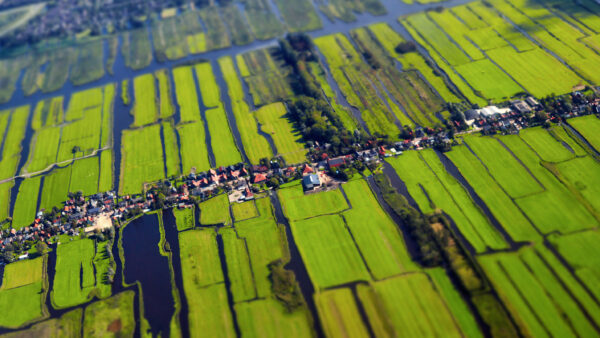Mid-February, the EU Commission presented its Vision for Agriculture and Food, an ambitious roadmap on the future of farming and food in Europe. This roadmap sets the stage for an attractive, competitive, resilient, future-oriented and fair agri-food system for current and future generations of farmers and agri-food operators.
This Vision for Agriculture and Food was proposed as a priority initiative for the first 100 days of this Commission’s mandate, led by Executive Vice-President Raffaele Fitto and Commissioner Cristophe Hansen, under the guidance of President Ursula von der Leyen. Building on the report of the Strategic Dialogue on the Future of EU Agriculture, and in consultation with the European Board for Agriculture and Food (EBAF), the Vision aims to secure the long-term competitiveness and sustainability of the EU’s farming and food sector. Based on the latest Eurobarometer results, EU citizens overwhelmingly agree that securing a stable food supply in the EU at all times is essential.
von der Leyen, President of the European Commission, said: “Our farmers take centre stage in the EU’s food production system. It is thanks to their daily, hard work that all of us have safe and high-quality food. Yet, our farmers face the growing challenges of global competition and climate change. That is why today, we are offering a comprehensive strategy that makes farming more attractive, more resilient and more sustainable.”
Four Priority Areas
- An Attractive Sector: Farming must have the necessary stability to encourage young people to enter the profession, including through fair incomes and better-targeted public support. They also need to be actively supported to reap the benefits of innovation and new business models, including from carbon and nature credits, as complementary sources of income. The Commission is committed to ensuring that farmers are not forced to systematically sell their products below production costs, and will take concrete action to that end, including through the review of the Unfair Trading Practices Directive. The Commission will also present a Generational Renewal Strategy in 2025, with recommendations on measures needed both at the EU and national/regional level to address the barriers to young and new people entering the profession.
- A Competitive and Resilient Sector: The EU will continue to prioritise food security and sovereignty in various ways. Trade negotiations and agreements will be used to their full extent, while protecting the interests of European farmers. The Vision also responds to the requests of farmers, citizens and society at large for a stronger alignment of production standards for imported products to guarantee that the EU’s ambitious standards do not lead to competitive disadvantage, while in line with international rules. For this reason, the Commission will start taking steps in 2025 to assess the impact of greater coherences in standards when it comes to the hazardous pesticides banned in the EU and on animal welfare. Additionally, the rigorous enforcement and controls of food safety standards remains a non-negotiable priority. The Commission will reinforce its focus on livestock to foster the long-term future of the sector.
- A Future-proof Sector: Europe’s agricultural sector plays an important role in the transition to a low-carbon economy. The Vision recognises the need to reconcile climate action with food security and the specific challenges faced by the sector. Farmers should be rewarded for adopting nature-friendly practices. In this context, the Commission will carefully consider any further ban on the use of pesticides if alternatives are not available in a reasonable time and will streamline access to biopesticides in the EU market. The Commission will also develop a voluntary benchmarking system, the ‘on-farm sustainability compass’, to help farmers measure and improve their farm-level performance. A Water Resilience Strategy will also be prepared to address the pressing need for more efficient water uses.
- Fair Living and Working Conditions in Rural Areas: The Commission will come forward with an updated Rural Action Plan to ensure that rural areas remain vibrant, functional, and deeply linked to the EU’s cultural and natural heritage. An annual Food Dialogue will also be launched with a broad range of actors, including consumers, farmers, industry and public authorities to find solutions for issues such as food affordability and innovation. Reducing food waste and addressing societal concerns for animal welfare will also be closely looked at by the Commission going forward.
Looking ahead, the future common agricultural policy (CAP), as part of the upcoming MFF (Multiannual Financial Framework) proposal, will be simpler and more targeted, with support more directed towards farmers who actively engage in food production, with a particular focus on young farmers and those farming in areas of natural constraints. Incentives, rather than conditions, will be favoured.
“The Vision is our resolute response to the agri-food sector’s call for action — shaping a future that is competitive, resilient, fair and attractive for generations to come. It embodies a thriving Europe, where rural areas are vibrant and connected hubs of heritage and innovation,” said Fitto, Executive Vice-President for Cohesion and Reforms. “The Commission will work hand in hand with the agri-food sector to enhance its competitiveness and resilience, reinforcing the local dimension and restoring the vital link between food, territory, seasonality, cultures and traditions. By strengthening synergies and complementarities and the coordination of funding instruments with sectoral policies, we will ensure effective support and tangible impacts for rural communities.”
Hansen, Commissioner for Agriculture and Food said that food and farming are vital for Europe’s people, economy and society. “We need the agri-food sector to flourish and compete in a fair global marketplace, with enough resilience to cope with crises and shocks. We must also ensure our own food sovereignty, given the risks and vulnerabilities of today’s fast-changing world. The roadmap we are presenting today sets out the path for tackling the many pressures that EU farmers face.
“It will make the sector more sustainable and help agriculture to remain an attractive and remunerative sector so that enough young people join the profession,” Hansen added. “And it will allow agriculture to continue playing a full part in the EU’s efforts to combat the effects of climate change. By respecting our diversity with a tailored approach, and by consulting with all parties involved, it will help us to shape an attractive farming and food sector for generations to come,.”
Later in 2025, the EU Commission will propose a comprehensive simplification package for the current agricultural legislative framework, along with an EU digital strategy for agriculture to support the transition to digital-ready farming.
Euroseeds welcomed the European Commission’s Vision for Agriculture and Food, as a concrete milestone towards a new landscape for Europe’s agrifood sector. The ambitious roadmap sets the stage for an attractive, competitive, resilient, future-oriented, and fair food production system that supports current and future generations of farmers and agri-food operators.
The Commission’s focus on simplifying policies and fostering innovation and digitalisation aligns with Euroseeds’ long-standing advocacy for a modernized, science-driven approach to agricultural sustainability and competitiveness. The upcoming 2025 simplification package and the EU digital strategy for agriculture will be key enablers in this transition, ensuring that farmers and the broader agri-food community can fully leverage technological advancements for increased efficiency and sustainability.
Euroseeds particularly welcomes the emphasis on:
- Ensuring an attractive agricultural sector by providing stability, fair incomes, and access to innovative business models, which will help secure generational renewal and attract young talent to farming;
- Strengthening competitiveness and resilience by ensuring a level playing field in global trade and aligning production standards for imported goods with EU regulations will reinforce food security and sovereignty;
- Supporting a future-proof sector by balancing climate action with food security, plant breeding innovations, improving access to biopesticides, and recognizing farmers’ role in sustainable practices are crucial steps toward a more sustainable and competitive agricultural sector.
Garlich von Essen, Secretary General of Euroseeds, stated: “This vision is a much-needed step forward in shaping the future of agriculture in Europe. The European seed sector stands ready to contribute to the success of this initiative by providing more modern, performing varieties that enhance productivity, resilience, and sustainability. We strongly support the Commission’s focus on innovation, simplification, and ensuring a fair and competitive market for European farmers.”
“As the European Commission moves forward with its implementation plans, Euroseeds remains committed to collaborating with policymakers and stakeholders to ensure that plant breeding and seed innovation continue to play a pivotal role in achieving a resilient and sustainable agri-food system for Europe,” concluded von Essen.













